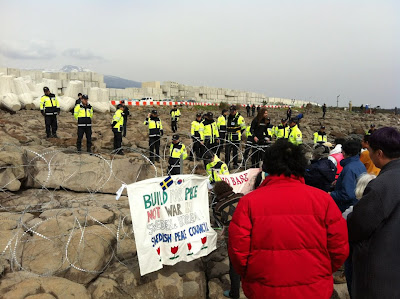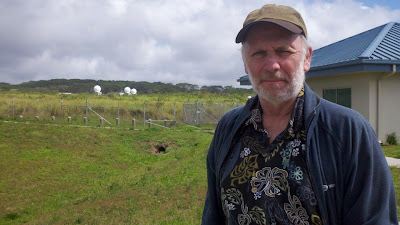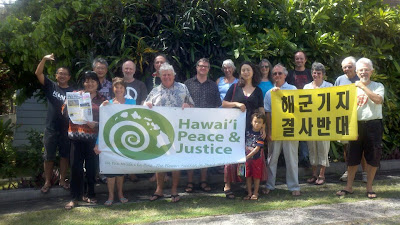
In the February issue of
The Sun magazine they have an excellent interview between journalist David Barsamian and economist Richard Wolff (emeritus at the Univ. of Mass-Amherst) and currently visiting professor at The New School in New York City.
Here are just a few of my favorite excerpts:
Barsamian: And employees are working longer hours today, right?
Wolff: That’s right. According to the Organisation for Economic Co-operation and Development (oecd), Americans do more hours of paid labor per year than workers in any other advanced country. That is because, if you don’t earn more per hour, the only way to deliver a better life to your family is by doing more hours of work. So Americans have been pushing themselves, taking second jobs or working full time if they had worked only part time before. We have elderly people coming out of retirement to help their grown children. Teenagers are working on weekends to help pay bills. Americans have committed to an incredible number of work hours per household to try to achieve a rising standard of living. Let’s remember that we are constantly bombarded by advertising telling us that, to be a success, we need a better house, a better car, a better vacation, and a college education for our children. To be financially successful today, most of us have to work crazy hours.
And of course the other thing the American working class has done since the 1970s to keep their consumption rising is take on debt. When your wages don’t go up, and adding a few hours a week isn’t enough, you buy on credit.
In the 1970s we had to develop new mechanisms for providing credit to the masses. Before then the only people who carried credit cards were traveling businessmen with expense accounts, and the only company offering such a card was American Express. But then MasterCard, Visa, and others came along to make credit available to the rest of us, because there was such a hunger on the part of our working class for a better standard of living. American workers started to borrow money on a scale that had never been seen before in any country.
Barsamian: There have been other busts and recessions and depressions throughout U.S. history. How is this one different?
Wolff: This isn’t a typical business cycle. This is the culmination of a thirty-year postponement of what happens when 150 years of steady real-wage increases comes to an end.
Capitalism is an inherently unstable system. I like to tell my students that if they lived with a roommate as unstable as this economic system, they would have moved out long ago. Capitalism is notorious for its ups and downs. We have a whole vocabulary to refer to them: booms and busts; recessions and depressions; upturns and downturns. When people have a lot of words for something, it’s because it’s a frequent phenomenon in their lives.
You would expect that we would know this about capitalism’s history and therefore not believe that we could somehow manage to escape instability. But over the last thirty to forty years we, as a society, have been unwilling to think critically about capitalism. And it shows. We thought we weren’t going to have another crisis like the one we had in the 1930s, or like the one the Japanese have had since 1990. We imagined that these problems were no longer relevant to modern life. So we were unprepared for the mess we’re in. Nothing shows our unpreparedness better than the inability of either President Bush or President Obama to deal with this problem.
So another reason this crisis is so different is that it’s coming at the end of a long period of denial. Let me give you an example: When I began my work as a PhD student in economics, the typical curriculum had a course about the business cycle, to introduce students to the history of economic ups and downs in their own country and others. In 2007 the vast majority of graduate programs in economics had no course on the business cycle at all. We thought we had overcome it, outgrown it. We had come to believe that we were in a new economic system, a mature capitalism, and that we had all the mechanisms to control it.
Barsamian: Is there anything that has surprised you about the Occupy Wall Street movement?
Wolff: Several things. First, the welcome OWS has extended to the labor movement, which has long been far too hesitant to enter into alliances with social movements. Second, its steadfast refusal to be pushed by its enemies — and also some of its friends — into articulating a set of specific demands, as if the demand for a different economic system were somehow “vague.” Instead OWS has held fast to its basic message of 1 percent versus 99 percent.
Barsamian: So who is most to blame for the mess we’re in?
Wolff: We should be beyond blaming the poor or the rich. Everybody did his or her part to contribute to this crisis. The bankers did what bankers do; the working people did what working people do. Everyone tried to make this system work for them. Workers couldn’t pay back their debts for understandable reasons. Employers stopped raising wages because the system allowed them to do it.
When a system has everybody playing more or less by the rules and achieves the level of dysfunction we have now, it’s time to stop looking for scapegoats and understand that the problem is the system itself. It’s driving everyone in it — corporations, individuals, banks, businesses on Main Street, whomever — to act in ways that are bad for the economy as a whole. It’s like when your refrigerator is on the fritz, and the repair person says, “Look, I can fix it, but it’s going to cost you fifty dollars for this, and forty-seven dollars for that, and fifty dollars for that. You can pump money into it, but you’ve gotten twenty years out of this fridge. I think it’s time to move on and get a new one.”
We’re at that stage with capitalism as a system. We need to decide whether it can be fixed or whether we need a new refrigerator.
Barsamian: What immediate steps would you recommend?
Wolff: I would focus on one short-term step that ought to be taken immediately, and one intermediate step that will be harder to take.
Let’s deal with the easy one first: We ought to have a national jobs program to put our unemployed back to work, and we ought to end the plan that has now failed for four and a half years, the plan of Presidents Bush and Obama, which is to provide incentives for the private sector to hire people. Unemployment is as high now as it was three years ago, or worse. It is unconscionable and unethical to stick with a policy of proven failure.
Two and a half years ago President Obama designed a stimulus program that was supposed to put people back to work. It offered incentives of various kinds: tax cuts and subsidies that would hopefully lead the private sector to hire more people. It cost roughly $800 billion and was passed by Congress. It didn’t solve the problem. In September 2011 President Obama went on television again to propose yet another stimulus, only this package was half the size of the one before it. Obviously if the first one failed, this one cannot work either.
The solution is for the government to hire people directly. Use every dollar of the program to create government jobs, not to provide incentives, some of which will end up in the hands of executives or shareholders. You want to put people to work? Hire them, and pay them a decent salary. We need day-care centers and programs for the elderly. We could be insulating our homes or building public transportation. In the 1930s the government built national parks, constructed levees in flood-prone areas, and so on. Those projects turned out to be useful for generations to come. It is unconscionable to have millions of people who want to work while one-quarter of our productive capacity — factories, machines, and tools — sits idle. When we have unemployed workers, unused tools, and unused raw materials, we’re losing out. So a jobs program ought to be enabled right away.
But more important than that, and a bit more far-reaching, is the need to democratize our enterprises. Right now the majority of people come to work Monday through Friday, 9 am to 5 pm, and use their brains and muscles to operate equipment provided by the employer to produce a good or a service, which the employer then sells for as much money as he or she can. All the decisions in this arrangement are made by a tiny group of people. In most corporations that group is the board of directors: fifteen to twenty people who decide what to produce, how and where to produce it, and what to do with the profits. And who selects these people? The major shareholders, another group of fifteen to twenty people. The vast majority of working people have no voice. If the board of directors and major shareholders decide to close down a factory in Ohio and move those jobs to China, all the people in the community who depend on that employer are going to suffer. But we permit that decision to be made by a tiny minority. In a democracy the people who have to live with the consequences of a decision ought to participate in making it.
What if the employees themselves ran these enterprises? How would that work? Maybe Monday through Thursday you would do the job you always did. On Friday you would come to work and sit in meetings with the other workers, making decisions democratically. You would collectively decide what to produce, how and where to produce it, and what to do with the profits.
If we’d had such an arrangement in the 1970s, the workers would not have stopped raising their own wages, so the whole credit-card borrowing frenzy could have been avoided. Would those workers have destroyed their own jobs by moving production overseas? Highly unlikely. Would those workers have employed technologies that pollute the local environment? I don’t think so, because they live there. They’re not going to risk their health and the health of their families the way that a board of directors living many miles away might. Would they have used the profits to speculate in risky derivatives? I doubt it. Would they have allowed some managers to earn astronomical salaries while the rest of the workers didn’t get raises? No. In fact, every part of our economic history over the last thirty years would have been radically improved if we’d had a different way of organizing our enterprises — not the top-down, undemocratic, and bureaucratic arrangement of corporations today, but a much more cooperative, collective, community-focused method that is democratic at its core.
For a country that prides itself on its commitment to democracy, we have always had a terrible gap between the private and public sectors. The most important activity of an adult’s life in this country is work. It’s what we do five days out of every seven. If democracy belongs anywhere, it belongs in the workplace. Yet we accept, as if it were a given, that once we cross the threshold of our store, factory, or office, we give up all democratic rights. If this agreement at least delivered a rising standard of living, it might make sense that people would accept it. But now we have an economic system that imposes an undemocratic workplace and doesn’t deliver a decent economy in exchange.
Barsamian: Do you think we can reform the system but keep it intact?
Wolff: Reform is what was accomplished the last time the economy collapsed, in the 1930s. Reforms are never secure. The banking reforms of the Depression were later repealed. The taxes on corporations and the rich were later sharply reduced. The federal employment programs were ended. Social Security benefits are now being cut. When reforms are not accompanied by a reorganization of enterprises, they leave power in the hands of people who have the incentive and the resources to undo those reforms. Major shareholders and their boards of directors use profits to buy the political power needed to undo the reforms that mass movements manage to win. Thinking people are already saying no to reform proposals. Systemic change must now be on the agenda, just as the Occupy Wall Street movement suggests.
Barsamian: Capitalism is resilient. It’s been up against the ropes before and bounced back. Can’t it do that now?
Wolff: No one ever knows — despite grandiose claims to the contrary — when an economic system has accumulated so many problems that its survival is no longer possible. Every economic system has made it through crises. It’s only reasonable to expect capitalism to do the same. Capitalism survived the Depression in the 1930s. But today’s circumstances are quite different. This is a deep and long-lasting crisis with global impact. Although I cannot predict whether a tipping point has been reached, I am glad that the question of whether capitalism continues to serve people’s needs is now on the minds of millions worldwide. That is a long-overdue development.
 Yesterday morning hundreds of police blocked kayak storage container not allowing villagers to even get the boats out. Isn't this a sign of desperation by the right-wing government that the people are winning the public relations struggle?
Yesterday morning hundreds of police blocked kayak storage container not allowing villagers to even get the boats out. Isn't this a sign of desperation by the right-wing government that the people are winning the public relations struggle?






















